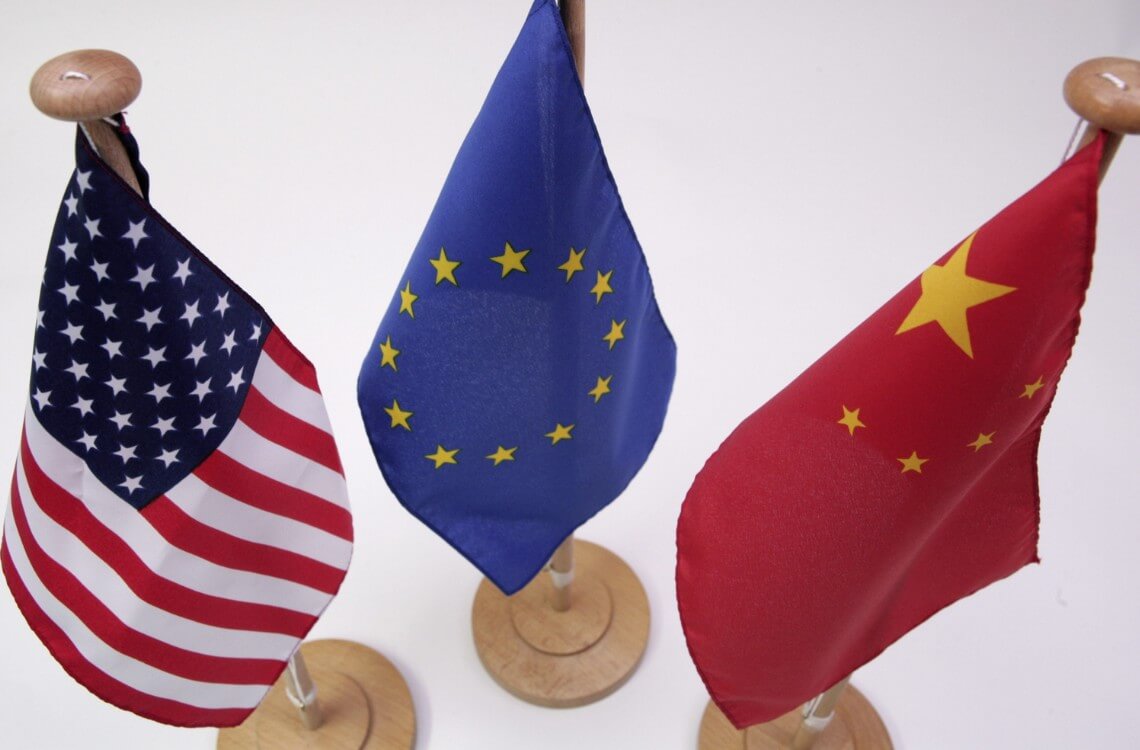The recent US-driven restrictions on investments in China’s high-tech sector have sent shockwaves through the global financial community. But while the US decisively takes action, the European Union navigates a more complex and intertwined relationship with Beijing, revealing a more hesitant approach and a reluctance to march lockstep with Washington.
Balancing Economic Ties and Security Concerns
President Joe Biden’s executive order to curb American investment into China’s forefront technological arenas—quantum computing, advanced chips, and artificial intelligence—cited “significant national security risks.”
These US actions, urging allies to mirror their steps, prompted an EU response that showcased Europe’s nuanced relationship with China and its intent to draft its own set of guidelines.
The European Commission made it clear: they’re maintaining “close contact” with the US but are not going to be pressured into immediate replication of its decisions.
Why? Because Europe’s economic dance with China is more intricate. Nations like Germany and France have expressed concerns about the drive to limit investments, emphasizing that their economic bonds with China are more profound than America’s.
In June, the commission outlined the EU’s concerns about specific technologies potentially bolstering military and intelligence capabilities that could disturb global peace. The underlying sentiment is clear.
Europe is wary of outright bans, fearing they could destabilize its financial markets. There’s a need to strike a balance between safeguarding international peace and ensuring economic stability.
EU’s Delicate Approach: Economic Stability versus Security
It’s not just about preventing advancements that could be weaponized. Europe’s hesitancy also stems from its distinct economic landscape.
Unlike the US, with its venture capital-rich environment, the EU has to consider its unique challenges, requiring an investment strategy tailored to its specific needs.
These discussions about trade controls come amidst rising global concerns about China’s access to vital technologies in defense and digital sectors and the Asian giant’s dominance in essential supply chains.
Yet, the EU, along with the UK, leans towards a policy of “de-risking” rather than stringent curbs. It’s a tightrope act of safeguarding national interests while ensuring economic prosperity.
France and Germany, two of the EU’s most robust economies, exemplify this delicate balance. Both nations understand the imperative of maintaining their economic connections with China.
Still, they’re also under pressure to tighten the reins on certain technologies. Berlin’s recent moves signal its intent to align with allies to prevent technological advances from bolstering Beijing’s military prowess.
However, it’s also evident that Germany grapples with internal divisions over the exact approach to China. Similarly, France, while cementing its economic ties, is keen on reducing its reliance on strategic industries like semiconductors and electric batteries.
The EU trade chief, Valdis Dombrovskis, offers another perspective, stressing the importance of monitoring European investments overseas. Yet, he emphasizes maintaining a harmonious relationship with China.
Interestingly, Dombrovskis didn’t shy away from voicing concerns over China’s restrictions on certain metal exports crucial for chip and electric vehicle manufacturing.
The decades-long relationship between the EU and China, with foreign direct investments surpassing €140bn, highlights the depth of their economic interdependence. The EU is treading carefully, understanding that any rushed decisions could have far-reaching implications on its member states.





